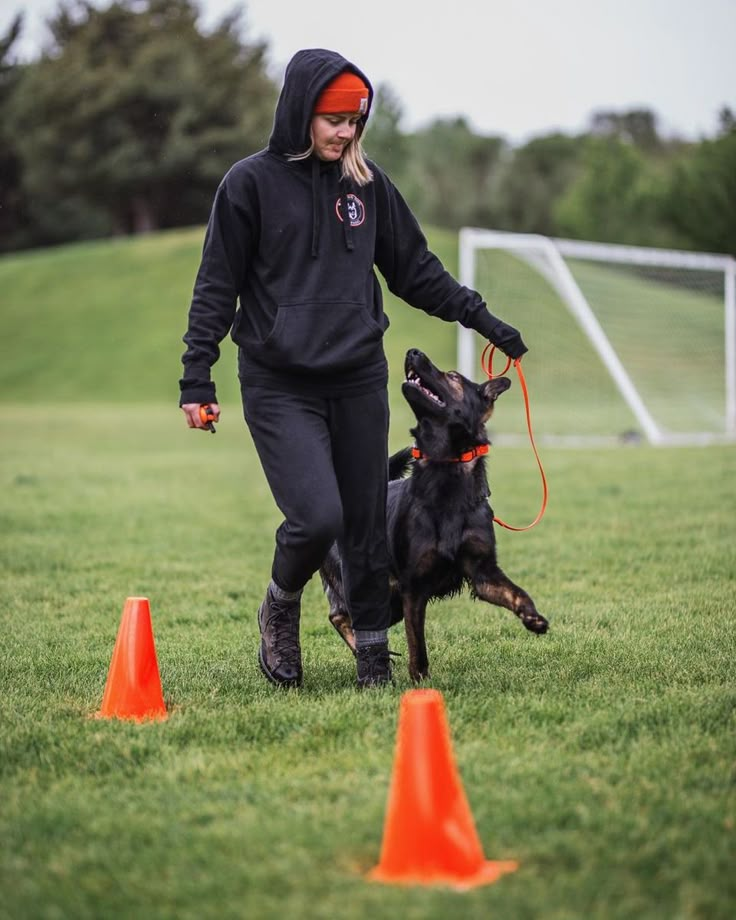When it comes to dog training in a bustling city like Los Angeles, owners are faced with a fundamental choice: group classes or private lessons. Both options offer distinct advantages and disadvantages, and the “best” choice ultimately depends on your dog’s personality, your specific training goals, your budget, and your lifestyle. Understanding the pros and cons of each approach is crucial for making an informed decision that leads to effective, lasting results.
Group Dog Training Los Angeles: The Community Approach
Group dog training classes typically involve multiple dogs and their owners learning together in a structured setting, often at a training facility, park, or community center.
Pros of Group Training:
- Affordability: This is often the most significant advantage. Group classes are generally more cost-effective per session than private lessons, making professional training accessible to more budgets.
- Socialization Opportunities: Learning alongside other dogs provides invaluable socialization. This exposure helps puppies and adult dogs learn appropriate social behaviors, build confidence around distractions, and become more comfortable in various environments.
- Distraction Training: The presence of other dogs and people naturally introduces distractions, which is excellent for teaching your dog to focus on you even in stimulating environments – a crucial skill for Los Angeles living.
- Community and Support: Group classes foster a sense of community among dog owners. You can share experiences, challenges, and tips with others who are going through similar training journeys.
- Structured Curriculum: Classes often follow a set curriculum, ensuring a progressive learning path for basic obedience commands.
Cons of Group Training:
- Less Personalized Attention: With multiple dogs, the trainer’s attention is divided. This means less one-on-one time for your specific dog’s challenges or learning style.
- Pace of Learning: The class pace is set for the group, which might be too fast for slower learners or too slow for quick learners.
- Not Ideal for All Behaviors: Group settings can be overwhelming or counterproductive for dogs with severe behavioral issues like aggression, extreme fear, or high reactivity. These issues often require a more controlled, private environment initially.
- Limited Flexibility: Classes typically run on fixed schedules, which can be challenging for busy Los Angeles parents with unpredictable routines.
- Risk of Negative Experiences: If not properly managed, a negative interaction with another dog in a group setting can set back a dog’s progress, especially for anxious or reactive dogs.
Private Dog Training Los Angeles: The Personalized Approach
Private Dog training Los Angeles involves one-on-one sessions with a professional trainer, often conducted in your home or other relevant environments.
Pros of Private Training:
- Highly Personalized Attention: The trainer’s focus is entirely on your dog’s unique needs, temperament, and learning style. This allows for customized strategies and faster progress on specific issues.
- Contextual Learning: As highlighted in the “In-Home Dog Training Los Angeles Options Reviewed” Canvas document, training in your home directly addresses issues like barking at the doorbell, counter-surfing, or house-training accidents where they occur.
- Flexibility: Sessions can be scheduled to fit your busy lifestyle, making it ideal for those with demanding work schedules.
- Ideal for Specific Issues: Private training is often the best choice for addressing severe behavioral problems such as aggression, separation anxiety, extreme fear, or resource guarding, where a controlled environment is essential.
- Owner Empowerment: Trainers dedicate time to teaching you the skills and understanding needed to effectively communicate with and train your dog, fostering a stronger bond.
Cons of Private Training:
- Higher Cost: Private lessons are significantly more expensive per session than group classes due to the individualized attention.
- Less Socialization: While trainers can incorporate controlled exposure to distractions, private training inherently offers fewer organic socialization opportunities with multiple dogs.
- Requires Owner Consistency: While the trainer provides the expertise, the onus is heavily on the owner to consistently practice the learned techniques between sessions.
- May Need to Add Distractions Later: If all training is done in a quiet environment, the dog may struggle to perform commands in more distracting real-world settings without additional practice.
Making the Right Choice for Your Dog
Consider these factors when deciding between group and private training in Los Angeles:
- Your Dog’s Temperament: For shy, fearful, or aggressive dogs, start with private training. Confident, social dogs can thrive in group settings.
- Your Training Goals: For basic obedience and socialization, group classes are excellent. For specific behavioral issues or advanced skills, private training is often more effective.
- Your Budget: Group classes are more budget-friendly.
- Your Schedule: Private lessons offer greater flexibility.
- Your Commitment Level: Both require consistency, but private training places more responsibility on the owner for practice.
Conclusion
Both group and private dog training options in Los Angeles offer valuable pathways to a well-behaved companion. By carefully weighing the pros and cons against your dog’s individual needs, your training goals, and your lifestyle, you can choose the approach that will yield the most effective and lasting results, fostering a harmonious and joyful relationship with your dog in the vibrant city of LA.

